The majority of my coaching is online, especially in these times of COVID-Iso. Without being present at a session, I believe the only way a coach can build a picture of the athlete’s progress is through post-activity feedback; both the objective and subjective data. As an athlete I have had my fair share of coaches who seem to miss the importance of post-workout comments (both reading and responding to these). Now as a coach I see these as invaluable in my assessment of the athlete’s progress because the metrics often don’t tell the full story (this is even assuming the metrics are recorded properly e.g. someone’s power meter drops out, someone forgets to put a new battery in their HRM, GPS records inaccurately due to cloud cover etc etc). I have had plenty of cases where the predicted effort level of certain metrics has not translated into the expected outcome. A female athlete who worked hard to achieve a power threshold value on the bike, yet we found efforts at supra-threshold were consistently still too easy based on subjective feedback. The data suggested that these efforts should be challenging and without comments there could have been a long period of inadequate stimulus to achieve proper training adaptation. On the other side of the coin I had an athlete consistently struggling with run repeats (frequent almost imperceptible stops), which on paper should have been easy to achieve. Without comments, and based on objective data, I could have kept trying to flog dead legs. Instead we have gone looking for the sweet spot of challenge.
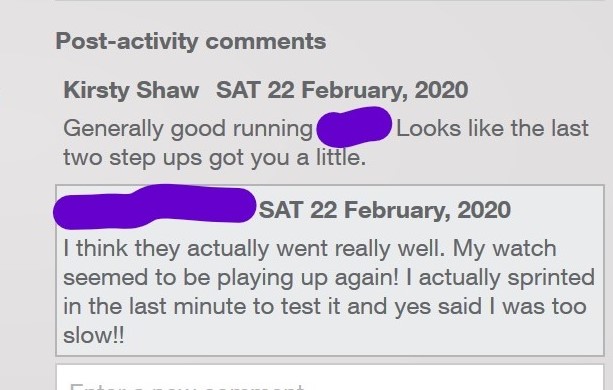
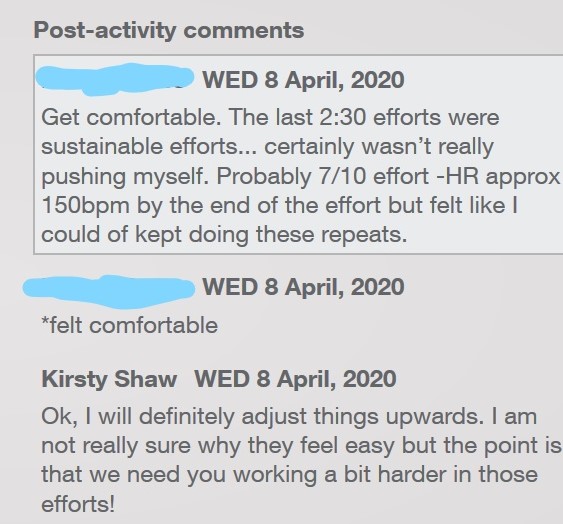
Remember that before data there was good ol’ how you felt. This is not to say subjective feedback should supersede objective metrics but that the two can be used very effectively in conjunction to flesh out the picture of your athlete’s performance.
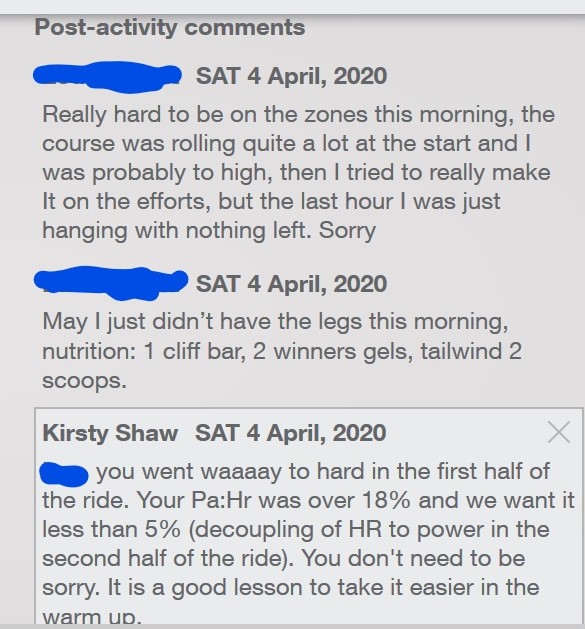
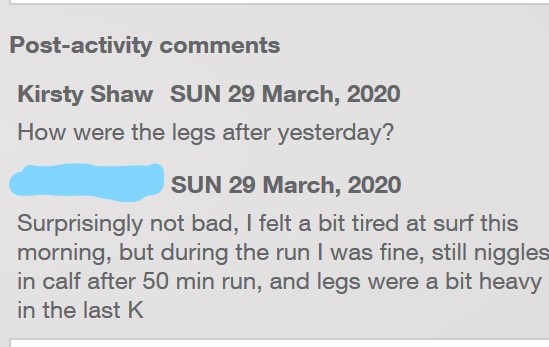
Over a year ago I read “Champion Mindset” by psychologist, coach, and ex-pro athlete Joanna Zeiger. One of the more profound thoughts I always remember from this book is the assertion that you don’t need to ‘feel’ good in order to perform well. As an athlete I had known this on some level but never brought it forward in my consciousness. Times where I thought my legs were cactus and I’d still come out and run a PR, or thinking I couldn’t ride up the mountain today but pushing aside the discomfort and getting it done. Frequent recent experiences in the pool where my (very insightful) swim coach would push me to do an extra effort where beforehand I’d emphatically state I was wiped and couldn’t beat the clock, but I actually could, and I did. Experiential evidence with the athletes I coach has come more recently. Pre-effort the doubts creep in and there are protestations about tired legs, headaches, or it not being the right time of day, week, or month. Most of these athletes still go and get the job done, and many surprise themselves. I think this shows that it would also be a mistake to think that subjective feedback from an athlete should always determine decisions on training but it should have some bearing. Equally an athlete who keeps telling you they feel like shit, and that actually pans out in chronic below expectation performances, needs to be listened to.
Subjective feedback gives an athlete a log of improvement that goes beyond the metrics. The same workout done four weeks apart may achieve a similar HR, cadence/ power etc BUT they may feel significantly less perceived effort output the second time around. It can also help to develop an athlete’s own insights into themselves and what works best for them in training. Feedback as a coach to your athletes performs a number of functions;
- it lets the athlete know where they are according to your expectations
- it is a great opportunity for you to be able to summarise the objective data
- it builds the coach-athlete relationship
- it provides a platform for educating your athlete
- it allows you both to gain clarity around the direction you need to take
- it helps build and maintain motivation and enthusiasm for training
Lack of feedback from a coach can very quickly leave an athlete wondering whether they are actually paying attention to their efforts, and interested in their performance. So much of performance is based on confidence in oneself as an athlete and one’s own abilities, that I have often mused about whether a coach can actually ‘damage’ performance purely through negligence in feedback. I suspect I could open up a rather large can of worms there, and that the answer may be different for opposing genders and personalities. A short google search will highlight the reams of research showing the power of positive feedback in enhancing an athlete’s performance. As a coach I am looking for bang for buck in terms of performance gains. If I can achieve a boost in performance for my athlete simply by (doing my job) and providing feedback, I’d be mad not to!
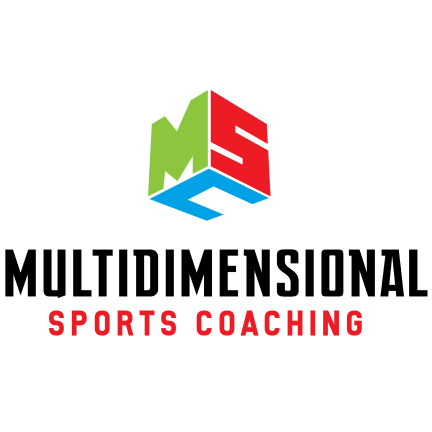
One thought on “Feedback-Reading the FULL story”
Comments are closed.